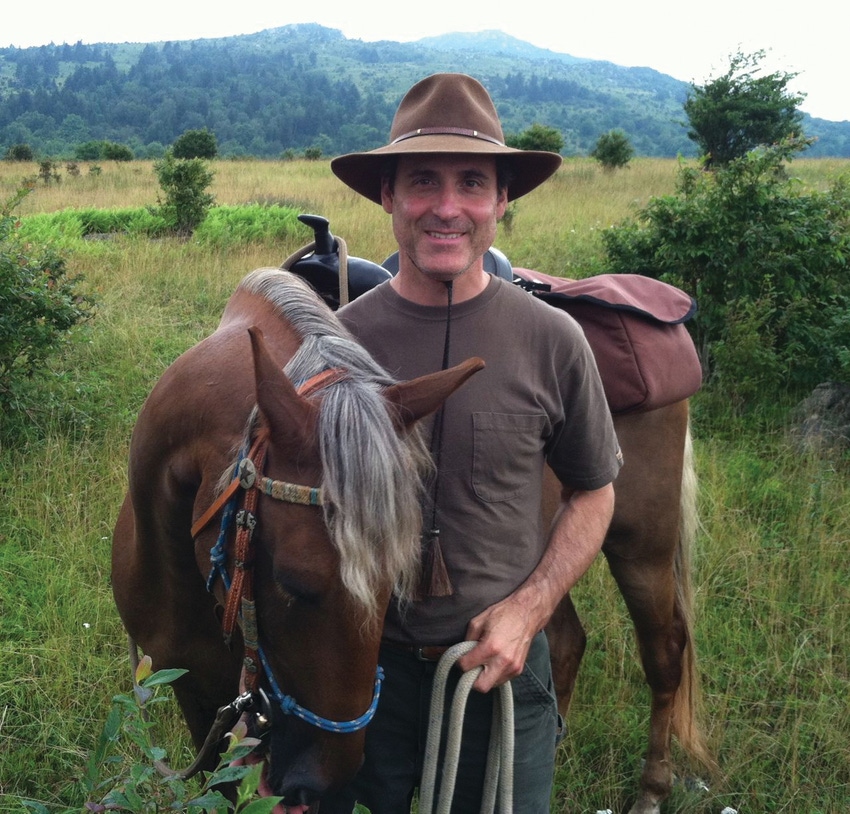August 20, 2013

Greg Cumberford is president of Bent Creek Institute, Inc., discusses the challenges botanical suppliers face in today's marketplace, especially supply chain integrity.
What are the biggest threats to botanicals?
Greg Cumberford: The biggest physical threats to botanicals are regional extirpation (local extinction) due to over-harvesting of wild native botanicals and supply change disruptions due, I believe, mostly to climate change.
The biggest commercial threat is loss of consumer and practitioner confidence in botanicals due to economically motivated adulteration (EMA) in the supply chain. We’re working in partnership with ABC, AHP, and others to combat this dangerous trend through a countervailing force: “economically motivated integrity.”
The time for allowing primary ingredient suppliers to prey on the naivete of brokers and manufacturers is over. This means everyone in the supply chain—from primary grower or wild-harvester to branded finished product manufacturer—taking ownership for the correct identity, purity, and sustainability of the materials they're supplying or using. It means following GMP-required 100% identity testing based on voucher-backed macroscopic, microscopic, and chemometric methods that are valid for a given botanical matrix. It means saying "no" to supply-chain players who are knowingly proffering adulterated raw materials, despite an attractive price per kilogram. It means educating purchasing managers in valid botanical identity methods.
Since raw materials typically only represent 8-12 percent of the embedded cost in the wholesale price of a finished product, botanical raw material purchasing should not be driven by price alone but rather by full-cycle cost considerations to a manufacturer's bottom line. That’s what their shareholders need most. It makes no sense to sacrifice attractive gross margins to poor net margins due to poor overall inventory and throughput management.
Fi: Bent Creek acts as a botanical “IP accelerator.” What does that mean exactly?
GC: Intellectual property (IP) is the legal and commercial source of innovation, and innovation drives the competitiveness of any company, sector or region. Our region, western North Carolina, has some of the highest native medicinal plant biodiversity in North America, coupled with a strong mountain cultural heritage of medicinal plant cultivation and use.
North Carolina is capable of supplying markets with premium-quality cultivated medicinal plants like echinacea, black cohosh, goldenseal, muscadine, elderberry, and stevia (to name just a few) backed by USBSL certificates of analysis and with full traceability to their sources. That’s what consumers want: trust, purity and traceability.
Further, North Carolina’s academic research infrastructure and agricultural capacity to produce a wide range of finished natural products or nutraceutical ingredients is unparalleled.
So Bent Creek Institute’s work is to accelerate successful commercial embodiments of plant-based natural products across a range of product types: body care products, dietary supplements, nutraceutical ingredients, household. We help natural products clients clear hurdles—technical, supply chain, regulatory, financial—and connect them to wider resources with relevant domain expertise. BCI also offers contract formulation services for companies seeking to move from idea to prototype to small-pilot batches. All within a non-profit framework. We also serve as the NC state chapter chair for the United Natural Products Alliance.
What would you hope the future would hold for the herbal industry?
GC: I want for American consumers and practitioners to adopt practices that treat herbs among their primary go-to wellness strategies. Our human physiology has co-evolved with medicinal plant phytochemistry over hundreds of thousands of years. It is only in recent decades that we've shifted away from whole plant medicines. Our bodies—our enormously complex cellular and microbiologic/metabolic processes—expect to encounter a rich herbivory as we progress from birth through childhood, adolescence, adulthood, and senescence. Much disease in our lives stems from denying our bodies their birthright from that co-evolved biodiverse heritage, principally through plant metabolism.
New advances in fields like nutrigenomics are bearing out linkages between various inflammatory disease states and a lack of a bio-diverse, plant-rich diet. Consumer preferences for the paleo diet, the Mediterranean diet, certified organic, and fair trade/fair wild products converge to support continuing access to traditional and novel plant-based formulations that protect our wellness from a range of modern onslaughts.
What does a perfect day with Jake look like?
GC: Ha! A perfect day with my horse Jake includes exploring somewhere new in our mountains with my wife Katie and her horse, Safari—preferably with creek crossings, mountain vistas, wildlife encounters, and a swim! Jake loves to swim and it’s so awesome to be on his naked back in a deep river or swim next to him as we explore ephemeral weightlessness. And, you know, Jake is an expert herbalist!
About the Author(s)
You May Also Like




